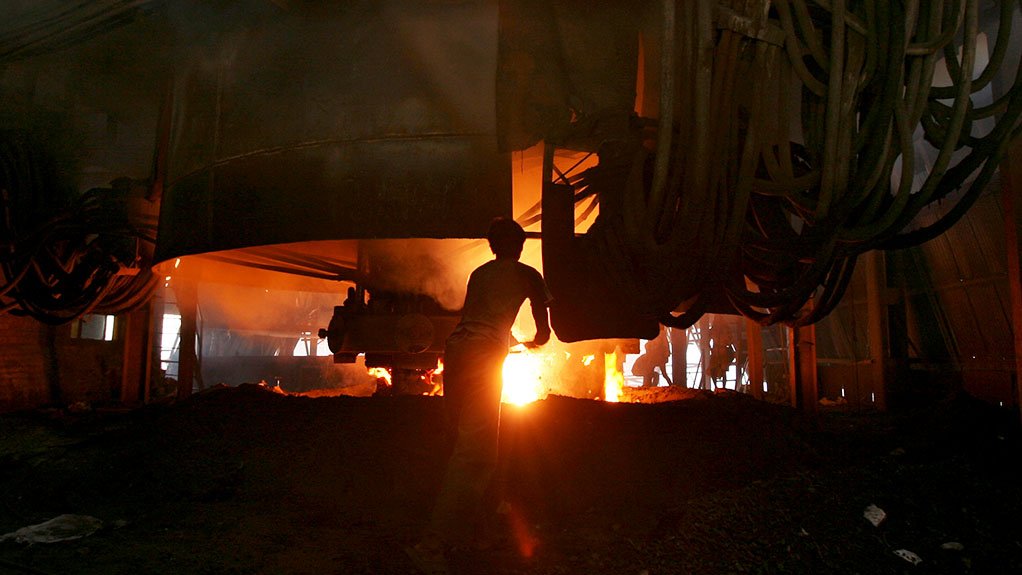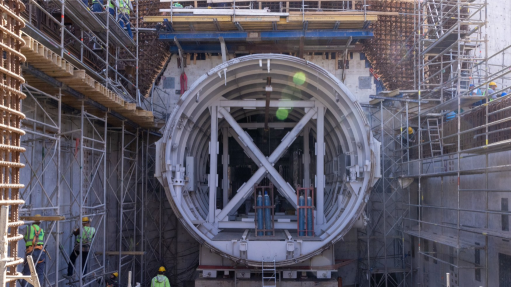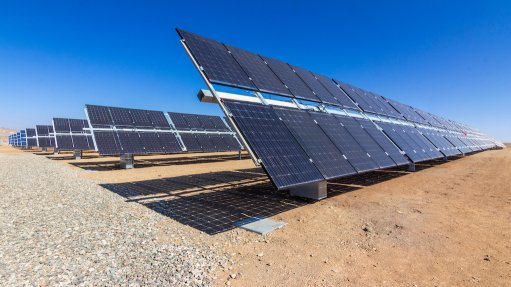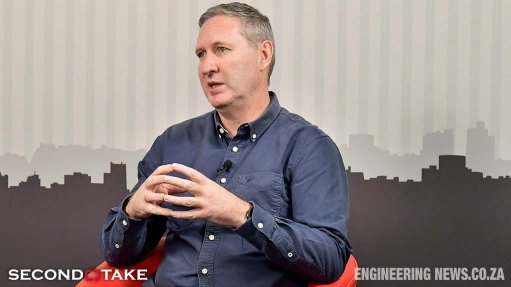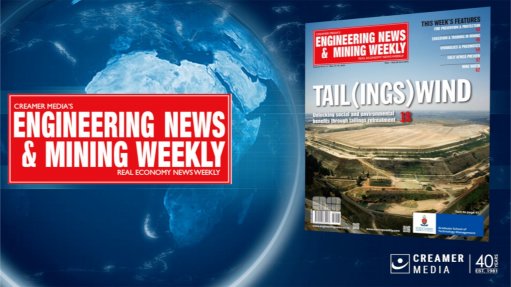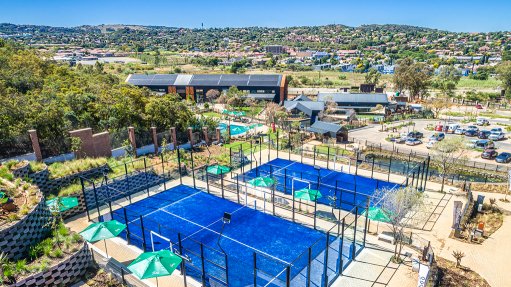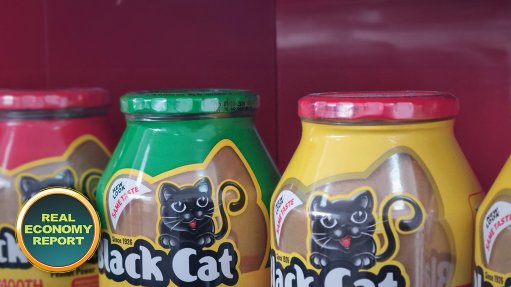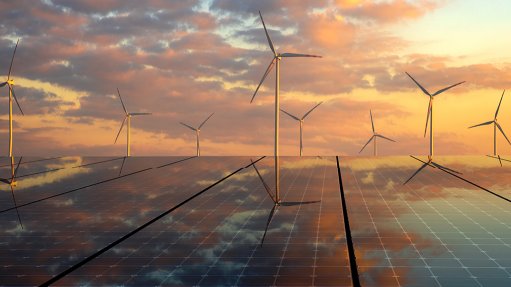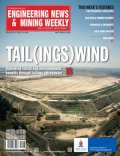Application made for incentivised power tariff under newly approved framework
The first application for tariff relief provided for under the Negotiated Pricing Agreement (NPA) frameworks published late last year by the Department of Mineral Resources and Energy (DMRE) has been submitted to the National Energy Regulator of South Africa (Nersa) for authorisation.
Nersa tells Engineering News & Mining Weekly that it will follow its normal approval process and will make a determination within a period of 120 days if all the information has been submitted.
It says that the identity of the applicant cannot yet be provided, as internal processes are still being followed.
The DMRE has approved a short-term NPA framework, with a duration of three to five years, as well as an interim long-term NPA framework, with a duration of six to ten years.
Both frameworks target large power users, with minimum consumption thresholds of 80 GWh and/or load factors greater than 70% and where electricity is a large cost component for the enterprise.
The short-term NPA is structured primarily to support the restart of assets shut as a result of electricity hikes, or to sustain operations at risk of closure.
The interim long-term NPA framework aims to incentivise the retention of operations in priority and strategic sectors that would otherwise be severely curtailed or shut down. It is also designed to support new investment in these sectors, principally investments geared towards beneficiating locally mined commodities.
Qualifying consumers under both frameworks will secure electricity at tariffs that are lower than would otherwise be available.
The frameworks provide guidance, but do not offer specific detail on the actual incentives structure. Payment, however, should be rand-denominated and the arrangement should not result in an embedded derivative.
All consumers granted the incentive benefits will be required to agree that their load be interrupted, with this interruptability used at the sole discretion of the system operator.
Applicants that meet the eligibility criteria are also expected to make application to Nersa together with Eskom or their municipal supplier.
An operation will become immediately ineligible if it has been found guilty of anticompetitive behaviour or corruption in the last three years, or should it be in arrears with its electricity supplier.
The frameworks also state that the electricity supplier, be it Eskom or a municipality, cannot be in a worse financial situation than would have been the case in the absence of the incentivised price.
The Energy Intensive Users Group of Southern Africa (EIUG) has welcomed the frameworks, noting that cumulative tariff hikes of more than 500% over the past 13 years have undermined the competitiveness of its mining and industrial members, which collectively consume about 40% of South Africa’s electrical energy.
An incentivised price, the EIUG argues, could enable large power users to reignite economic growth and retain or create jobs.
“We believe that some of our members qualify, as they have either shut down or shifted processing of raw materials to countries with more stable energy policies; each smelter shutting down represents in the order of 1 000 to 3 000 permanent and contractor jobs being affected, negatively affecting some 5 000 to 15 000 lives.”
Eskom CEO Andre de Ruyter has confirmed the submission of the first application to Nersa and reports that there is significant interest in the incentive from industry.
He, too, is not disclosing the identity of the interested firms, citing commercial confidentiality.
It has been widely reported that ferrochrome producers are particularly keen to secure a more competitive tariff, with one producer, ChromeSA, having already formally welcomed the NPA framework.
“A fair deal as regards the cost of electricity has always been central to securing the future of the South African ferrochrome industry, given that power costs are a large component of their cost structure,” the company said in a recent statement.
Eskom, too, is keen to take advantage of the frameworks, particularly in light of the decline in sales to industrial customers over the past few years and a whopping 17.6% decline in industrial sales during the Covid-afflicted interim period to the end of September.
Electricity sales during the period slumped by an unprecedented 10.7 TWh year-on-year to 93.4 TWh, with reductions reported across all customer categories.
De Ruyter indicates that Eskom is making efforts to recover lost industrial sales, but says much will depend on the nature and effect of lockdown restrictions imposed in response to the pandemic.
He said there was a particular opportunity to deploy the NPA frameworks to support new investment from a minerals-processing perspective, “which we are quite interested in and which appears to be quite promising”.
Comments
Press Office
Announcements
What's On
Subscribe to improve your user experience...
Option 1 (equivalent of R125 a month):
Receive a weekly copy of Creamer Media's Engineering News & Mining Weekly magazine
(print copy for those in South Africa and e-magazine for those outside of South Africa)
Receive daily email newsletters
Access to full search results
Access archive of magazine back copies
Access to Projects in Progress
Access to ONE Research Report of your choice in PDF format
Option 2 (equivalent of R375 a month):
All benefits from Option 1
PLUS
Access to Creamer Media's Research Channel Africa for ALL Research Reports, in PDF format, on various industrial and mining sectors
including Electricity; Water; Energy Transition; Hydrogen; Roads, Rail and Ports; Coal; Gold; Platinum; Battery Metals; etc.
Already a subscriber?
Forgotten your password?
Receive weekly copy of Creamer Media's Engineering News & Mining Weekly magazine (print copy for those in South Africa and e-magazine for those outside of South Africa)
➕
Recieve daily email newsletters
➕
Access to full search results
➕
Access archive of magazine back copies
➕
Access to Projects in Progress
➕
Access to ONE Research Report of your choice in PDF format
RESEARCH CHANNEL AFRICA
R4500 (equivalent of R375 a month)
SUBSCRIBEAll benefits from Option 1
➕
Access to Creamer Media's Research Channel Africa for ALL Research Reports on various industrial and mining sectors, in PDF format, including on:
Electricity
➕
Water
➕
Energy Transition
➕
Hydrogen
➕
Roads, Rail and Ports
➕
Coal
➕
Gold
➕
Platinum
➕
Battery Metals
➕
etc.
Receive all benefits from Option 1 or Option 2 delivered to numerous people at your company
➕
Multiple User names and Passwords for simultaneous log-ins
➕
Intranet integration access to all in your organisation



